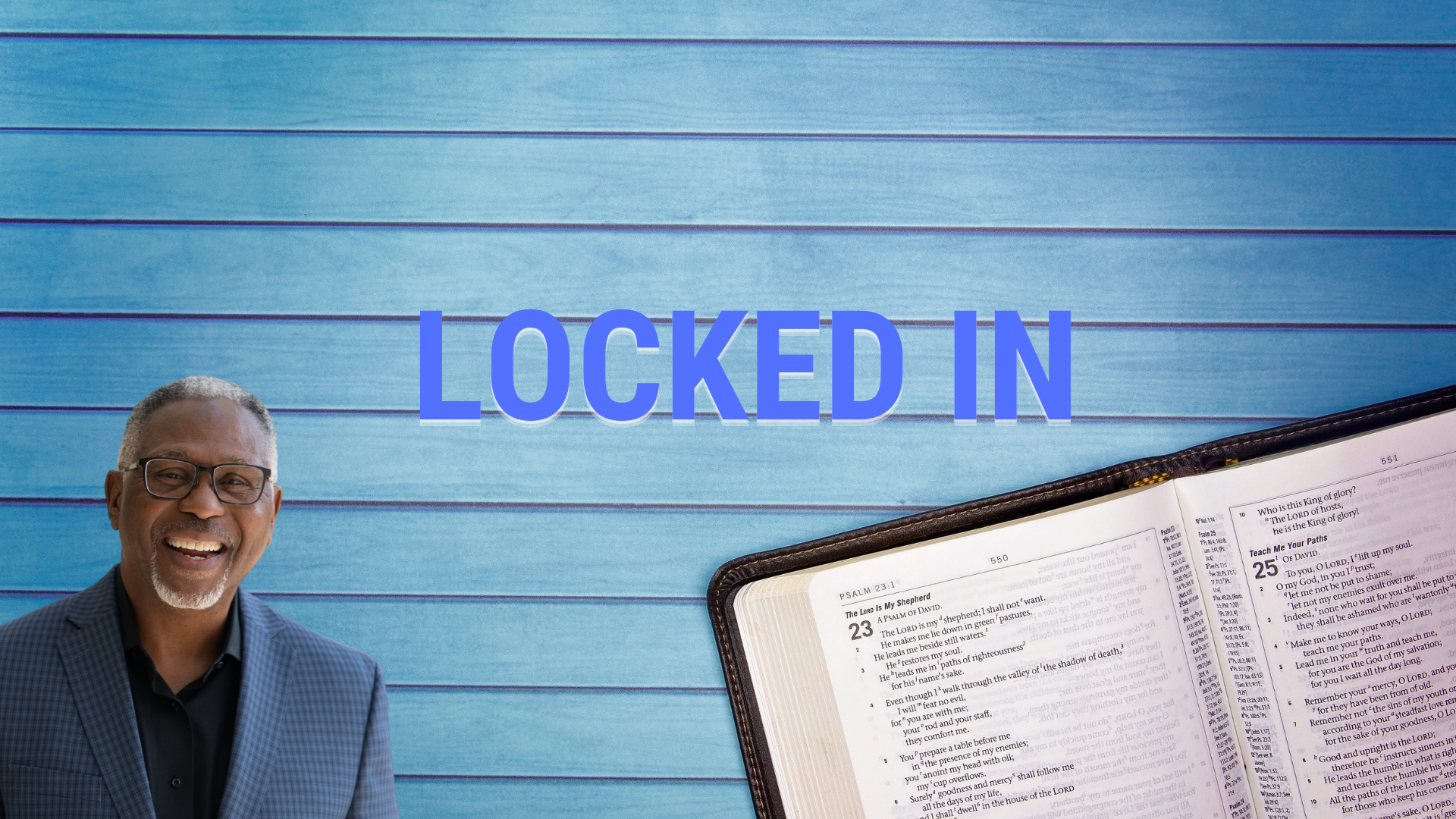
Locked In
August 31, 2025
Dr. Paul Cannings
It is easier to go along to get along because there is less tension, the potential for broken relationships is minimized, and with all that is upon each person every day, less stress to deal with. The Bible does say, “When there are many words, transgression is unavoidable, But he who restrains his lips is wise.” (Proverbs 10:19; NASU) It also says; “If anyone thinks himself to be religious, and yet does not bridle his tongue but deceives his own heart, this man’s religion is worthless.” (James 1:26) So because the Bible instructs us to manage the tongue since it can be a deadly poison (James 3:8), and to season it with salt (Colossians 4:6), we tend to be silent or avoid those moments than can be stressful. This disposition is not intended. The words in reference to the tongue are never about us being speechless; they are in the vein of ‘restrain,’ ‘bridle,’ or ‘manage’ because it can be constructive if used incorrectly (James 3:1-12).
There are passages such as 1 Peter 3:10-17 when we are experiencing difficulties that would teach us to, “….sanctify Christ as Lord in your hearts, always being ready to make a defense to everyone who asks you to give an account for the hope that is in you, yet with gentleness and reverence; and keep a good conscience ……. you are slandered, those who revile your good behavior in Christ will be put to shame.” We are the salt and light to the world (Matthew 5:13-16). When the demon-possessed man was healed, and the Pharisees called Christ Beelzebul, Christ took on their accusation and responded (Matthew 12:22-29); the same is true in many passages, including Matthew 23 and Mark 7:6-13. This is because we represent the only hope for sin to be restrained (Proverbs 14:34; 2 Thessalonians 2:7).
Throughout the scriptures, those who resisted creating their own peace for their own self-preservation are the ones who played a significant role in implementing the Lord’s agenda as change agents. In the midst of the prophets of Baals is Elijah who refused to go along to get along. Amidst the other youths in Babylon, it was the commitment of Danel, Shadrach, Meshach, and Abednego to the Lord’s Word (Daniel 1:8) that changed a nation. This commitment certainly did not remove tension or stress; it made their lives worse. Peter refused to be quiet, no matter how intimidating the circumstances surrounding him were, which impacted on his well-being (Acts 2). Paul refused to be silent, even when he had no lawyer, and stood in his own defense, speaking for the Word of God, knowing the consequences would be his death (Acts 22-28). Even when he stood for Christ it did not mean he would not be shipwrecked and bitten by a venomous snake. Christ spoke up when brought to trial (Matthew 27:11-26; John 23).
We are at war, strap up (Ephesians 6:11-18), and lock in (Hebrews 12:1-3).





